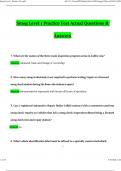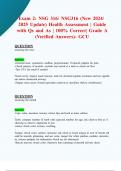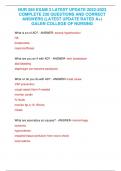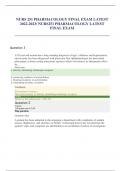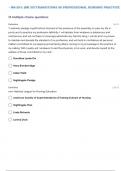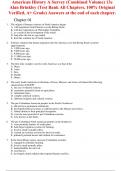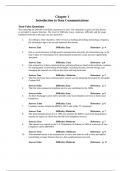Exam (elaborations)
OSHA 500 Actual Exam Solved Reviewed Combined 500+ Questions With Revised Correct Detailed Answers >Latest Update>>
- Course
- Institution
OSHA 500 Actual Exam Solved Reviewed Combined 500+ Questions With Revised Correct Detailed Answers >Latest Update>> 1. What are the four main types of electrical injuries? - ANSWER Electrocution, electric shock, burns, indirect (e.g., a fall from a ladder) 2. 2....
[Show more]






